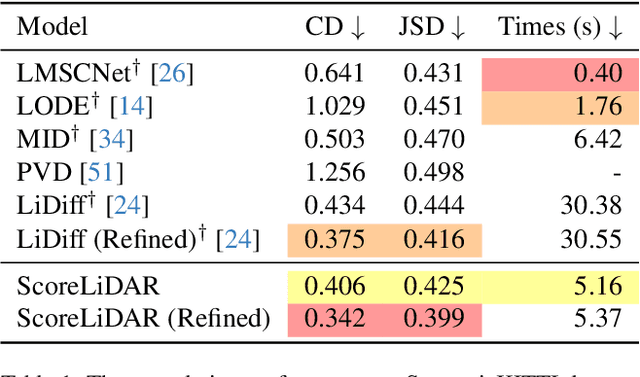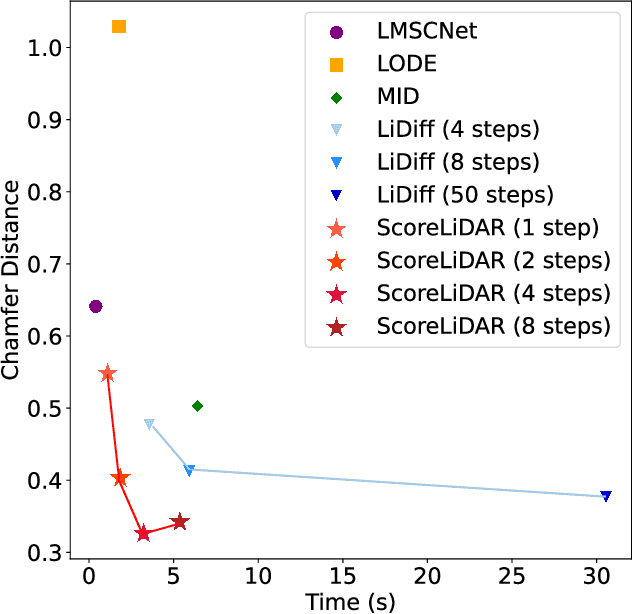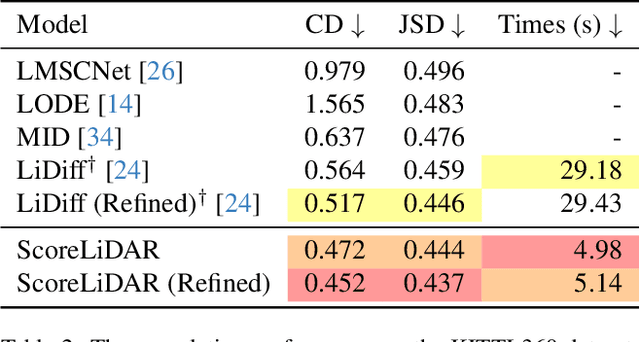Chenye Meng
Beyond Binary Preference: Aligning Diffusion Models to Fine-grained Criteria by Decoupling Attributes
Jan 07, 2026Abstract:Post-training alignment of diffusion models relies on simplified signals, such as scalar rewards or binary preferences. This limits alignment with complex human expertise, which is hierarchical and fine-grained. To address this, we first construct a hierarchical, fine-grained evaluation criteria with domain experts, which decomposes image quality into multiple positive and negative attributes organized in a tree structure. Building on this, we propose a two-stage alignment framework. First, we inject domain knowledge to an auxiliary diffusion model via Supervised Fine-Tuning. Second, we introduce Complex Preference Optimization (CPO) that extends DPO to align the target diffusion to our non-binary, hierarchical criteria. Specifically, we reformulate the alignment problem to simultaneously maximize the probability of positive attributes while minimizing the probability of negative attributes with the auxiliary diffusion. We instantiate our approach in the domain of painting generation and conduct CPO training with an annotated dataset of painting with fine-grained attributes based on our criteria. Extensive experiments demonstrate that CPO significantly enhances generation quality and alignment with expertise, opening new avenues for fine-grained criteria alignment.
LAION-SG: An Enhanced Large-Scale Dataset for Training Complex Image-Text Models with Structural Annotations
Dec 11, 2024



Abstract:Recent advances in text-to-image (T2I) generation have shown remarkable success in producing high-quality images from text. However, existing T2I models show decayed performance in compositional image generation involving multiple objects and intricate relationships. We attribute this problem to limitations in existing datasets of image-text pairs, which lack precise inter-object relationship annotations with prompts only. To address this problem, we construct LAION-SG, a large-scale dataset with high-quality structural annotations of scene graphs (SG), which precisely describe attributes and relationships of multiple objects, effectively representing the semantic structure in complex scenes. Based on LAION-SG, we train a new foundation model SDXL-SG to incorporate structural annotation information into the generation process. Extensive experiments show advanced models trained on our LAION-SG boast significant performance improvements in complex scene generation over models on existing datasets. We also introduce CompSG-Bench, a benchmark that evaluates models on compositional image generation, establishing a new standard for this domain.
Distilling Diffusion Models to Efficient 3D LiDAR Scene Completion
Dec 04, 2024



Abstract:Diffusion models have been applied to 3D LiDAR scene completion due to their strong training stability and high completion quality. However, the slow sampling speed limits the practical application of diffusion-based scene completion models since autonomous vehicles require an efficient perception of surrounding environments. This paper proposes a novel distillation method tailored for 3D LiDAR scene completion models, dubbed $\textbf{ScoreLiDAR}$, which achieves efficient yet high-quality scene completion. ScoreLiDAR enables the distilled model to sample in significantly fewer steps after distillation. To improve completion quality, we also introduce a novel $\textbf{Structural Loss}$, which encourages the distilled model to capture the geometric structure of the 3D LiDAR scene. The loss contains a scene-wise term constraining the holistic structure and a point-wise term constraining the key landmark points and their relative configuration. Extensive experiments demonstrate that ScoreLiDAR significantly accelerates the completion time from 30.55 to 5.37 seconds per frame ($>$5$\times$) on SemanticKITTI and achieves superior performance compared to state-of-the-art 3D LiDAR scene completion models. Our code is publicly available at https://github.com/happyw1nd/ScoreLiDAR.
Distribution Backtracking Builds A Faster Convergence Trajectory for One-step Diffusion Distillation
Aug 28, 2024



Abstract:Accelerating the sampling speed of diffusion models remains a significant challenge. Recent score distillation methods distill a heavy teacher model into an one-step student generator, which is optimized by calculating the difference between the two score functions on the samples generated by the student model. However, there is a score mismatch issue in the early stage of the distillation process, because existing methods mainly focus on using the endpoint of pre-trained diffusion models as teacher models, overlooking the importance of the convergence trajectory between the student generator and the teacher model. To address this issue, we extend the score distillation process by introducing the entire convergence trajectory of teacher models and propose Distribution Backtracking Distillation (DisBack) for distilling student generators. DisBask is composed of two stages: Degradation Recording and Distribution Backtracking. Degradation Recording is designed to obtain the convergence trajectory of teacher models, which records the degradation path from the trained teacher model to the untrained initial student generator. The degradation path implicitly represents the intermediate distributions of teacher models. Then Distribution Backtracking trains a student generator to backtrack the intermediate distributions for approximating the convergence trajectory of teacher models. Extensive experiments show that DisBack achieves faster and better convergence than the existing distillation method and accomplishes comparable generation performance. Notably, DisBack is easy to implement and can be generalized to existing distillation methods to boost performance. Our code is publicly available on https://github.com/SYZhang0805/DisBack.
 Add to Chrome
Add to Chrome Add to Firefox
Add to Firefox Add to Edge
Add to Edge